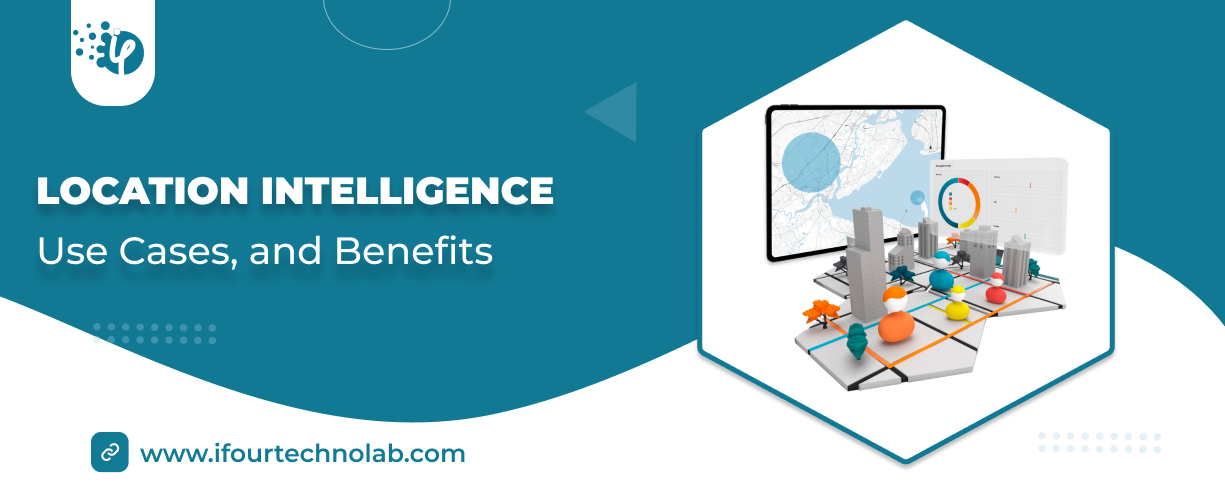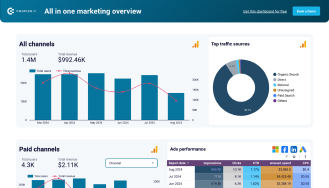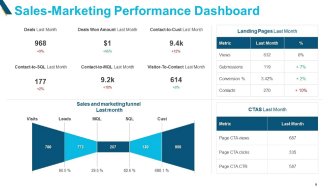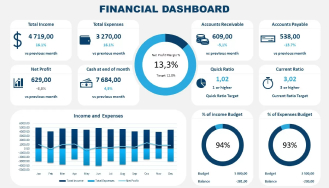Ethical Considerations for Using AI in Healthcare Software
Let’s keep it simple. In healthcare, trust, safety, and human dignity come first, no matter what solution you build. The same applies to AI. Today, it is everywhere, from clinics...
Listening is fun too.
Straighten your back and cherish with coffee - PLAY !

You must be wondering what exactly is Location Intelligence. To put it simply, it is basically a way of deriving actionable insights from geographic data and spatial relationships to make informed decisions.
It focuses on the collection, analysis, and visualization of data based on geographic locations, integrating it with additional datasets like demographic information, customer behaviours, current market trends, etc.
For example, let’s say you have a law firm specializing in Real estate cases. You can use Location Intelligence to analyze property data, zoning regulations, and nearby land use for clients involved in property disputes.
By combining this data with demographic trends and city planning details, you can create more convincing, evidence-based arguments. That’s how location intelligence impacts property values and legal results.
Did you know that the location intelligence market in the US which held 5.42 billion dollars in 2024, is expected to hit 16.59 billion dollars by 2034? That's about 12% of what it was in 2024!
LI enables organizations to understand the where aspect of their operations, such as identifying high-performing regions, optimizing logistics routes, or assessing market potential in specific locations.
Hire Power BI developers from iFour for industry-specific dashboards
Let’s delve further and understand - what are the benefits and use cases of location intelligence.
Location intelligence, or spatial data actually uses GIS technology (Geographic Information System) for regional insights. This technology is in high demand and often used in areas such as the Navy, transportation, aviation, etc. Now let's understand the key benefits of Location intelligence.
Location Intelligence enhances decision-making by providing valuable insights through spatial data visualization. By integrating geographic data with business information, companies can better understand patterns and trends, such as customer behavior, market opportunities, and operational efficiency.
Visualizing data on maps or heatmaps makes it easier to -
This view enables decision-makers to act based on real-time, location-based insights, reducing risks and improving resource allocation.
Ultimately, Location Intelligence supports more accurate, data-driven decisions, helping businesses gain a competitive edge and improve overall performance.
Location Intelligence improves operational efficiency by optimizing processes and reducing costs through the use of spatial data. By analyzing geographic information, businesses can streamline logistics, reduce delivery times, and manage resources more effectively.
For example, companies can identify the most efficient routes for transportation, minimizing fuel costs and improving delivery times. Location Intelligence also helps in workforce management, allowing businesses to allocate staff where they are most needed.
By visualizing data such as traffic patterns or customer locations, businesses can eliminate inefficiencies, lower operational costs, and improve overall productivity, ultimately enhancing service delivery and performance.
It boosts customer satisfaction by enabling businesses to deliver personalized services and targeted marketing. By analyzing spatial and demographic data –
This ensures that customers receive relevant products or services on time, improving their overall experience.
Launch your custom MVP with #1 Power Apps development company
No matter if you're in legal, fintech, or healthtech, the power to gather spatial insights through GIS technology opens up significant opportunities. This capability can really help your business stand out from the competition.
By geographic data and spatial analytics –
This deeper understanding enables them to make informed decisions regarding site selection, marketing strategies, and resource allocation.
For instance, businesses can pinpoint underserved areas for expansion or tailor their offerings to specific demographics based on location data.
This way you can enhance customer satisfaction, optimize operations, and respond more effectively to market changes, ultimately leading to a stronger competitive position.
Take a look at these prime Power BI use cases we've crafted for our industry CTOs. These BI examples helped them simplify their operational decisions!



Risk Management in Location Intelligence is about finding and reducing risks using location data. By looking at geographic information, businesses can see where they might face problems, like natural disasters or supply chain issues.
For example
By managing risks well, businesses can protect themselves and keep things running smoothly.
Read More: Top Data Analytics Trends You Can't Ignore
Revenue Growth through Location Intelligence involves unlocking new revenue streams by utilizing data-driven strategies. By analyzing geographic and demographic data, businesses can identify untapped markets and customer segments, leading to new opportunities for expansion.
By understanding where their target customers are located, companies can make informed decisions about where to open new stores or launch targeted marketing campaigns.
Now that you know the benefits of location intelligence and how it can help you in analyzing data for smart decisions. Let’s now take a look at the use cases of Location Intelligence for various industries.
Geospatial data services in Healthcare help improve patient care and resource distribution. By geospatial analysis and spatial data analytics, healthcare providers can gain critical insights into geographic data, which helps them identify areas with elevated patient needs. It also helps in identifying problems and possibilities of spatial data in EHR (Electronic Health Records).
Geospatial Data Analysis in Healthcare:
Automate your operations effortlessly with Power Automate consulting services
Location Intelligence in Legal is used to enhance public safety and support law enforcement efforts. By analyzing geographic data, law enforcement agencies can identify crime hotspots and patterns, helping them allocate resources more effectively. This information can guide patrol routes and improve response times to incidents.
Location intelligence can significantly enhance various aspects of legal practice. Here are some key ways:
A. Investigative Support:
B. Real Estate Law:
Location Intelligence in Finance helps assess market risks and identify investment opportunities. By analyzing geographic data, financial institutions can evaluate factors like regional economic trends, real estate values, and demographic changes. This information allows them to make informed decisions about where to invest or lend money.
Here is how Spatial data analysis can improve Fintech operations:
Customize your business software with top .NET development company
Location Intelligence in Retail focuses on optimizing store locations and managing inventory effectively. Retailers can determine the best sites for new stores based on factors like customer demographics and competition. This ensures that they reach their target audience efficiently.
It also helps retailers manage inventory by identifying which products are in demand in specific areas, allowing them to stock items accordingly. This approach reduces costs, improves customer satisfaction, and increases sales by ensuring the right products are available in the right locations.
By analyzing geographic data, they can identify areas with the greatest needs for healthcare, education, and transportation. This enables better resource allocation and planning for infrastructure projects.
For instance, understanding population density helps in designing public transportation routes and emergency services, ensuring efficient service delivery.
When it comes to telecommunications, location intelligence benefits are huge. Telecommunications companies employ spatial analysis for planning network infrastructure and service coverage.
By analyzing geographic data, they can identify areas with high demand for connectivity and determine the best locations for cell towers and other infrastructure.
This helps ensure that services are available where they are most needed, improving customer satisfaction.
Additionally, understanding geographic patterns in usage can assist in optimizing network performance and planning for future expansions.
Protect your user data with Microsoft Entra ID consulting services
It helps you enhance route planning and fleet management. By geographic data, they can determine the most efficient routes for deliveries, reducing travel time and costs. This also helps in optimizing fleet utilization, allowing companies to manage their vehicles more effectively.
Real-time location tracking enables better monitoring of shipments, leading to improved customer satisfaction through timely deliveries.
By understanding traffic patterns and road conditions, logistics providers can proactively address potential delays and enhance overall operational efficiency.
Real Estate professionals use Location Intelligence to analyze market trends and property valuations effectively. This analysis helps agents and investors determine property values based on various factors, such as proximity to amenities, schools, and transportation options.
Uses of Location Intelligence in Real Estate
Understanding demographic information and buyer preferences also allows for targeted marketing strategies, increasing the chances of successful sales.
Manufacturing companies utilize Location Intelligence to streamline production processes and supply chains. By analyzing geographic data, they can optimize the location of facilities, warehouses, and distribution centres to reduce transportation costs and improve efficiency.
Location Intelligence uses - Supply Chain Management
So, these are the real-world use cases of Spatial analytics in diverse industries. Applying location intelligence offers you similar benefits that you get using Tableau, MS Fabric or Power BI.
In summary, the incorporation of spatial analytics into different sectors demonstrates its versatility and importance. Location Intelligence is important for enhancing decision-making, improving operational efficiency, and driving revenue growth across various sectors, including healthcare, finance, and real estate.
Spatial analytics, much like top data analytics tools, offers the same potential to show a big set of data. This means that it can help you uncover patterns that are related to specific locations.
This blog went through the benefits and examples of location intelligence. We also looked at how each industry can apply spatial analytics in their processes and how effectively they can get the results for informed decision-making. We hope this helps you!
Get your business intelligence needs simplified with iFour’s Power BI consulting services. Connect with us now.
(Turning insights into various data visualizations)
It is a type of data analytics tool that enables organizations to visualize and analyze spatial data, providing insights based on geographic location for decision-making and optimising operations.
Geospatial intelligence is important because it enables organizations to make data-driven decisions by analyzing spatial relationships and patterns, leading to improved operational efficiency, risk management, and strategic planning across various industries.
Some popular Location Intelligence tools include ArcGIS, Tableau, Google Maps Platform, MapInfo, and Carto. These tools offer features for data visualization, analysis, and mapping to enhance spatial insights for businesses.
Top Location Intelligence use cases include market analysis, site selection, logistics optimization, customer segmentation, and disaster response planning.
Location intelligence improves route optimization for fleet management by analyzing real-time traffic data, geographic conditions, and delivery locations, enabling companies to determine the most efficient routes, reduce travel time, and lower fuel costs.
Businesses can use location intelligence for decision making by analyzing spatial data to identify market trends, optimize supply chains, enhance customer targeting, and improve resource allocation.
Key features of Location Intelligence Software include mapping capabilities for visualizing geographic data, data integration for combining various data sources, analytical tools for in depth spatial data analysis, and reporting and visualization functionalities to present insights in an easily digestible format for decision makers.
Types of Location Intelligence Software include desktop applications for offline data analysis and visualization, cloud-based solutions for scalable access and collaboration, and mobile applications that provide real time location data and analytics on the go.
This eBook shows you how.

Let’s keep it simple. In healthcare, trust, safety, and human dignity come first, no matter what solution you build. The same applies to AI. Today, it is everywhere, from clinics...

Let's keep it real. The whole point of building autonomous Agents is to cut manual work and keep focus on business. Approvals that used to take days can happen in hours because...

Remember our last guide - Power BI forecasting? It revealed things that truly blocks accuracy, both structural and situational. Now it's time to take the next step. Knowing Power...